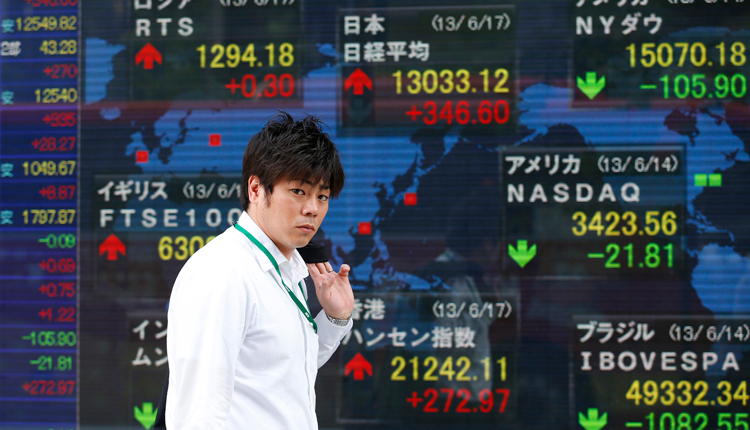Asian stocks were mixed on Thursday as global markets calmed after an elevation in trade tensions between the U.S. and China triggered a sell-off earlier in the week.
The Nikkei 225 added 0.79 percent, with machinery stocks leading the gains. The advance in consumer and technology sector stocks also contributed to the index’s overall advance, with pharmaceutical stocks up 1.22 percent. Automakers pared losses through the session, with Toyota last higher by 0.32 percent.
Other major markets in the region recorded gains, although greater China markets little changed before the lunch break. Hong Kong’s Hang Seng Index edged up by 0.03 percent. On the mainland, the Shanghai composite drifted 0.06 percent higher.
Australian stocks advanced more convincingly, with the S&P/ASX 200 tacking on 1.13 percent amid broad-based gains.
Meanwhile, the Kospi, South Korea’s benchmark share average, slipped 0.3 percent as declines in financials weighed on the index.
Elsewhere, New Zealand’s benchmark S&P/NZX 50 advanced 1.4 percent, outperforming other markets in the region. MSCI’s broad index of shares in Asia Pacific outside of Japan rose 0.12 percent.
Concerns over trade relations between the world’s two largest economies eased somewhat.
“So far what we have really seen is not a trade war but a trade skirmish,” Shane Oliver, chief economist at AMP Capital, said in a note. “Our base case is that after a bit more grandstanding for domestic audiences, negotiations recommence by early July … which ultimately lead to a resolution before the tariffs are implemented. Share markets would rebound in response to this.”
Still, given the escalation in tension and policy unpredictability surrounding U.S. President Donald Trump, Oliver said he had only attached a 55 percent probability to that scenario playing out.
Trump on Monday requested the U.S. Trade Representative to identify $200 billion in Chinese products that would be subject to an additional 10 percent tariff. China responded that it would retaliate with countermeasures if the U.S. went through with those threats.
Analysts attributed the calmer state of markets overnight to the lack of substantial new developments on the U.S.-China trade spat.
In other trade-related news, the U.S. could be making some progress on its relations with other trading partners. German automakers are proposing to terminate the European Union’s import tax on U.S.-made cars, the Wall Street Journal reported Wednesday.
Also of note, Federal Reserve Chair Jerome Powell said that the case for continued interest rate increases is “strong.” Powell’s comments came after the Fed last week raised interest rates by a quarter percentage point.
Stateside, the Nasdaq composite rose 0.72 percent to close at a record 7,781.51 and the S&P 500 advanced 0.17 percent. Gains came amid corporate deal-making news and followed declines seen earlier in the week on the back of an escalation in U.S.-China trade tensions.
On the commodities front, U.S. crude futures slipped 0.03 percent to trade at $65.59 per barrel after settling higher by almost 2 percent in the last session. Brent crude futures edged down by 0.27 percent to trade at $74.54.
The move lower came before a meeting of OPEC and some non-OPEC producers later this week to discuss output curbs that were put in place in 2017.
Iran’s oil minister, who had previously expressed doubt that the group would come to an agreement, indicated on Wednesday that Iran could be open to a slight increase in supply, Reuters said.
Source: CNBC


